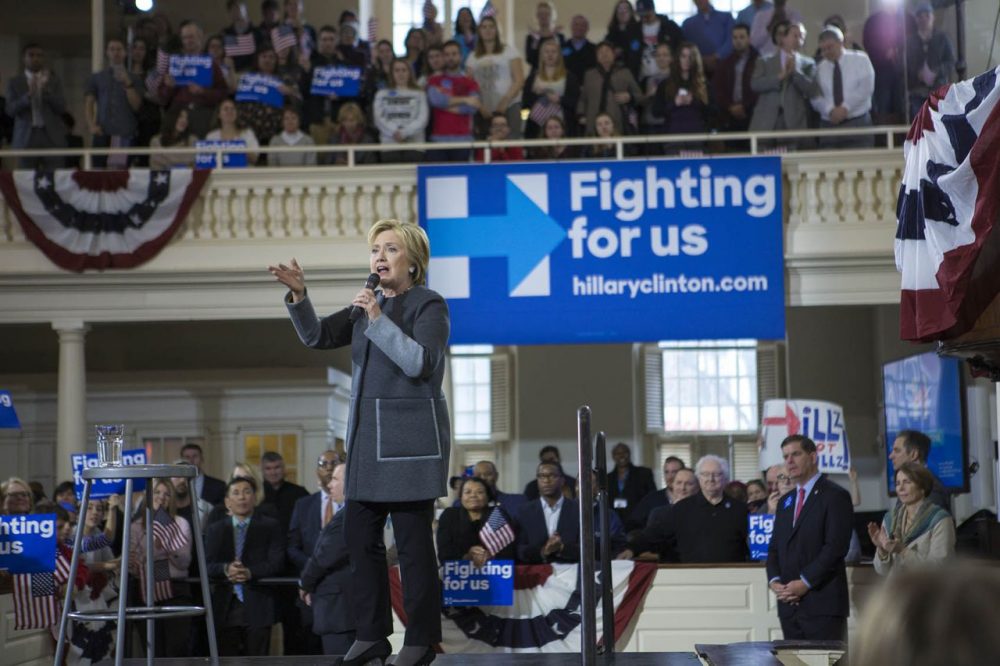Advertisement
Analysis: Mayor Walsh Delivered Boston For Clinton

Last week, Hillary Clinton claimed victories on Super Tuesday in seven states, compared with four for Vermont Sen. Bernie Sanders.
One of the key victories for Clinton was Massachusetts, and Boston Mayor Marty Walsh had a big role in that. Clinton’s win was driven almost exclusively by Boston’s voter turnout which, in turn, was driven by Walsh.
Two weeks prior to Super Tuesday, many polls had Sanders ahead or in a dead heat with Clinton. Public Policy Polling, in particular, had Sanders up by 7 points, 49 percent to 42 percent. (A WBUR poll released four days before the Bay State primary had Clinton ahead, 49 percent-44 percent.)
The common wisdom was that Massachusetts was fertile ground for Sanders. It borders Vermont and has a vast natural constituency of young progressive voters.
In Boston, the numbers were even more foreboding. With more than one-third of Boston's population between the ages of 20-34, Boston is the home to the highest proportion of young adults of any major city in America. Sanders enjoys a large advantage with these voters, both nationally and locally.
In addition to the polling data, a key indicator measuring turnout and candidate momentum was tilting heavily in Sanders’ direction. Absentee ballots in the 2016 primary were up sharply in Boston compared with 2008. In looking through that data prior to the election, Novus’ analysts found that those who requested absentee ballots in Boston were younger, more liberal and more likely to be male — the profile of a Sanders supporter.
In Ward 21, which straddles both Allston and Brighton, 18- to 34-year-olds submitted over 50 absentee ballots. By comparison, Wallingford Road in Ward 21, a gold mine of readily cataloged and harvested senior citizen votes, didn’t produce a single absentee ballot. The trend clearly favored Sanders.
Enter Marty Walsh. Over the course of weeks, the mayor redeployed his troops from their appointed rounds in Manchester, New Hampshire, and plugged them in around the clock. They made calls and went door to door. The mayor organized and hosted a pre-election rally at the Old South Meeting House, where he corralled many of the state’s other Democratic power brokers, and he accompanied the candidate and former President Bill Clinton wherever they went.
The results: Hillary Clinton won Boston by 19,898 votes -- more than her entire margin of victory in the state (17,068 votes).
The importance of the mayor of Boston’s endorsement in presidential politics has not always been clear. In 1984, Ray Flynn endorsed Walter Mondale and Gary Hart went on to win Boston. In 2008, Thomas Menino supported Clinton and she lost Boston handily to Barack Obama. If Clinton got only 44 percent of the votes, as she did eight years ago when she had the backing of Menino, she would have lost Massachusetts and the results of Super Tuesday would have been a 6-5 split with Sanders.
Put simply, Walsh delivered Boston for Clinton, which delivered Massachusetts, and essentially turned the tide of Super Tuesday and notched a win in Sanders' home region.
Frank Perullo is president of Novus Group, and Paul Scappichio is president of public affairs for Novus Group and a former Boston city councilor.